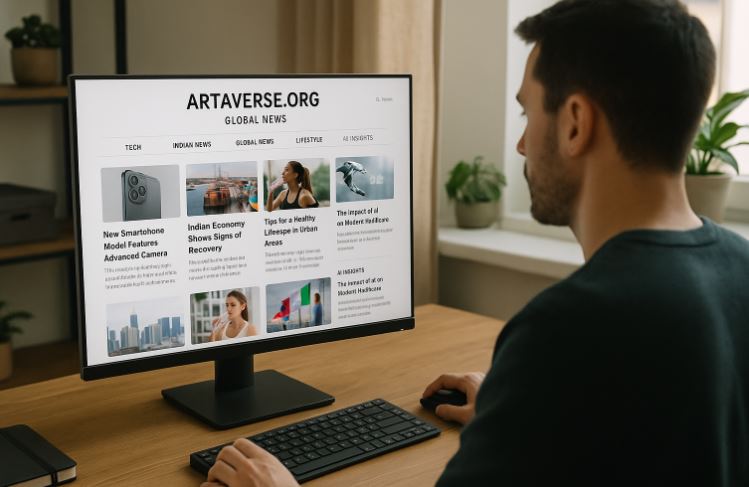The Indian Foreign Service (IFS) is a prestigious career that offers the opportunity to represent India on the global stage. Aspiring to become an IFS officer is a dream for many, but the journey is challenging and requires dedication, hard work, and strategic preparation.
From completing the rigorous UPSC Civil Services Examination to undergoing specialized training, each step demands determination and focus.
This guide provides a detailed roadmap for how to become Indian Foreign Service officer, covering eligibility, preparation tips, selection processes, and more. If you are ready to embark on this transformative journey, read on to discover how to become an Indian Foreign Service officer.
What Is an Indian Foreign Service Officer?
The Indian Foreign Service (IFS) is one of the most prestigious branches of the Indian civil services. IFS officers represent India on a global stage, acting as diplomats in various international arenas.
Their responsibilities include promoting India’s interests abroad, fostering international relations, and managing consular activities for Indian citizens living overseas.
Established in 1946, the IFS plays a crucial role in shaping India’s foreign policy and maintaining its image on the world stage.
Officers in this service work under the Ministry of External Affairs (MEA) and are assigned to embassies, consulates, and high commissions worldwide.
An IFS officer’s duties encompass economic cooperation, cultural diplomacy, trade negotiations, and peacekeeping efforts.
They also play a pivotal role in addressing international conflicts, negotiating treaties, and representing India in global organizations such as the United Nations.
The position requires a deep understanding of international law, world politics, and cultural sensitivity. Along with being fluent in English and other languages, an IFS officer needs exceptional negotiation and interpersonal skills.
How to Become Indian Foreign Service Officer?

Becoming an Indian Foreign Service officer is a structured yet challenging journey, starting with the Union Public Service Commission (UPSC) Civil Services Examination (CSE).
The CSE is one of the toughest exams in India and acts as the gateway to prestigious services like the IFS.
The process begins with eligibility. Candidates must be Indian citizens with a graduate degree from a recognized university. Additionally, age limits apply, usually between 21 and 32 years, with relaxations for certain categories.
Next comes the preparation phase. Since the IFS selection is through the UPSC, candidates must clear three stages:
- Preliminary Exam (Prelims): Objective-type questions on general studies and aptitude.
- Main Exam (Mains): Written examinations covering nine papers, including essay writing, general studies, and an optional subject.
- Personality Test (Interview): A panel evaluates the candidate’s communication skills, presence of mind, and suitability for the IFS.
After clearing the exam, selected candidates undergo rigorous training at the Lal Bahadur Shastri National Academy of Administration (LBSNAA) and the Sushma Swaraj Institute of Foreign Service (SSIFS).
This training equips them with diplomatic skills, international law knowledge, and cultural awareness.
The path to becoming an IFS officer is arduous but rewarding, offering an unparalleled opportunity to represent India globally.
What Are the Eligibility Criteria for Becoming an IFS Officer?
The eligibility criteria for becoming an Indian Foreign Service officer are clearly defined by the Union Public Service Commission (UPSC). Meeting these requirements is the first step toward this prestigious career.
1. Nationality: The candidate must be an Indian citizen.
2. Educational Qualification:
- A bachelor’s degree from a recognized university is mandatory.
- Final-year students awaiting results can also apply, provided they submit proof of graduation at the time of the main examination.
3. Age Limit:
- General category candidates must be between 21 and 32 years as of August 1 of the exam year.
- Age relaxation applies to other categories:
- OBC: 3 years
- SC/ST: 5 years
- Persons with Disabilities: 10 years
4. Number of Attempts:
- General category: 6 attempts
- OBC: 9 attempts
- SC/ST: Unlimited attempts (till the age limit is reached)
5. Physical Standards: Candidates must meet specific physical and medical standards outlined by the UPSC, especially for diplomatic assignments that demand physical fitness and resilience.
It is essential for aspirants to ensure they meet these criteria before applying. Once eligible, candidates can focus on preparing for the rigorous stages of the UPSC Civil Services Examination.
Proper planning, consistent effort, and understanding of the criteria can help candidates stay confident as they progress toward their IFS goals.
How to Prepare for the UPSC Civil Services Examination?

Preparing for the UPSC Civil Services Examination requires strategic planning, consistent effort, and effective time management. Here are key steps to ace the exam:
1. Understand the Exam Pattern
The UPSC consists of three stages:
- Preliminary Exam: Two objective-type papers (General Studies and CSAT).
- Main Exam: Nine descriptive papers, including General Studies, Essays, and Optional Subjects.
- Interview: Personality assessment by a panel of experts.
2. Build a Solid Foundation
- Read the NCERT books (6th–12th) for subjects like history, geography, and economics.
- Use standard reference books like Laxmikanth for polity, Spectrum for modern history, and Ramesh Singh for economics.
3. Stay Updated on Current Affairs
- Regularly read newspapers like The Hindu or Indian Express.
- Follow credible monthly current affairs magazines.
4. Practice Answer Writing
Answer writing is crucial for the Mains. Regular practice helps structure responses and improve speed.
5. Attempt Mock Tests
- Enrol in the test series for Prelims and Mains to gauge performance.
- Analyse mistakes to improve weak areas.
6. Time Management
Allocate fixed hours daily for study, revision, and practice. Consistency is key to success.
Preparing for UPSC demands dedication, but with the right resources and mindset, aspirants can overcome challenges and secure their place in the Indian Foreign Service.
What Is the Selection Process for Indian Foreign Service Officers?
The selection process for Indian Foreign Service officers is highly competitive and meticulously structured. It consists of three stages under the UPSC Civil Services Examination:
1. Preliminary Examination (Prelims)
- This is the first qualifying stage.
- It includes two papers:
- General Studies (GS): Covers topics like history, geography, economy, and current affairs.
- CSAT: Focuses on analytical and reasoning skills.
- Only those who qualify in the Prelims can proceed to the Mains.
2. Main Examination (Mains)
- This stage involves nine descriptive papers:
- 4 General Studies Papers: Covering governance, international relations, and ethics.
- 2 Language Papers: One compulsory Indian language and English.
- 1 Essay Paper: Tests articulation and argumentation skills.
- 2 Optional Papers: Based on a subject chosen by the candidate.
- Marks from the Mains carry significant weight in the final ranking.
3. Personality Test (Interview)
- A panel of experts evaluates candidates on their personality, communication skills, and presence of mind.
- The interview also assesses the candidate’s knowledge of current events and their suitability for a diplomatic role.
Final selection is based on the combined scores of the Mains and the Interview. The process ensures only the most capable and well-rounded individuals join the Indian Foreign Service.
What Is the Training Process for an IFS Officer?

Once selected, Indian Foreign Service officers undergo rigorous training to prepare for their challenging roles. The training process combines academic learning, practical exposure, and skill development.
1. Foundation Training at LBSNAA
The journey begins at the Lal Bahadur Shastri National Academy of Administration (LBSNAA) in Mussoorie. IFS probationers train alongside recruits from other civil services to develop an understanding of governance, administration, and leadership.
2. Specialized Training at SSIFS
After completing the foundation course, IFS officers move to the Sushma Swaraj Institute of Foreign Service (SSIFS) in New Delhi. Here, they receive specialized training in:
- International relations and diplomacy
- Foreign policy and global politics
- International law and economic cooperation
- Language training (specific to their assigned country)
3. Attachment Programs
Probationers are attached to various government departments, including the Ministry of External Affairs (MEA), defense establishments, and economic institutions, for practical exposure.
4. Overseas Training
IFS officers also undergo a foreign posting for real-world diplomatic experience. This includes working at Indian embassies or consulates to understand the intricacies of international relations.
The training process ensures that officers are well-versed in cultural sensitivity, negotiation skills, and effective communication, preparing them to handle complex global issues with poise.
What Are the Key Responsibilities of an IFS Officer?
Indian Foreign Service officers represent India globally and perform a wide range of responsibilities vital to the country’s international relations.
1. Diplomatic Representation: IFS officers act as ambassadors, high commissioners, and consuls in Indian missions abroad, promoting India’s interests and fostering strong bilateral ties.
2. Policy Formulation; They assist in developing foreign policies by providing insights into global political, economic, and social issues.
3. Negotiations and Agreements: IFS officers are involved in drafting and negotiating treaties, agreements, and pacts on behalf of the Indian government.
4. Consular Services: Ensuring the welfare of Indian citizens abroad is a key responsibility, Including resolving legal disputes, issuing visas, and assisting during emergencies.
5. Multilateral Diplomacy: Representing India in international organizations such as the United Nations, World Trade Organization, and BRICS is an important aspect of their work.
The role requires critical thinking, cultural awareness, and strong communication skills. It also offers opportunities to influence global diplomacy and contribute to national development.
What Is the Career Path and Growth in the IFS?

An Indian Foreign Service officer’s career is dynamic, with opportunities for growth and global exposure. Here’s a breakdown of the career progression:
1. Entry-Level Roles: IFS officers start their careers as Third Secretaries in Indian missions abroad. After completing their probation, they are promoted to Second Secretary.
2. Mid-Level Roles: With experience, officers take on roles such as First Secretary or Counsellor, managing specific portfolios like trade, cultural diplomacy, or political affairs.
3. Senior-Level Roles
- As they climb the ranks, officers become Ambassadors or High Commissioners, representing India in key countries.
- They may also serve in senior positions in the Ministry of External Affairs, overseeing significant policy areas.
4. Global Opportunities: IFS officers often work with international organizations, including the UN or regional bodies, contributing to global governance.
Career growth is merit-based, and officers are evaluated on their performance, leadership, and diplomatic achievements. While the career is rewarding, it demands adaptability and resilience due to frequent relocations and challenging assignments.
What Are the Benefits and Challenges of Being an IFS Officer?
A career in the Indian Foreign Service is prestigious but comes with both rewards and challenges.
Benefits:
- Attractive Salary and Perks: Officers receive competitive pay, housing, and allowances, especially during foreign postings.
- Global Exposure: Opportunities to work in diverse cultures and represent India internationally.
- Career Growth: Merit-based promotions and leadership roles.
- Influence: The ability to shape India’s global image and foreign policy.
Challenges:
- Frequent Relocations: Officers relocate every 3-5 years, requiring adaptability and resilience.
- High Pressure: Diplomacy demands quick decision-making and handling sensitive issues.
- Family Adjustments: Relocations can disrupt family life, especially for spouses and children.
Despite the challenges, many find the IFS an immensely fulfilling career, offering a chance to make a meaningful impact on international relations.
How Can Aspirants Stay Motivated During Their Preparation?

Preparing for the UPSC Civil Services Examination can be overwhelming, but staying motivated is key to success.
- Set Clear Goals: Define why you want to join the Indian Foreign Service. Having a purpose helps sustain motivation during tough times.
- Create a Routine: Structure your day with dedicated time for study, revision, and relaxation. A balanced schedule prevents burnout.
- Celebrate Small Wins: Acknowledge progress, whether it’s completing a chapter or scoring well in a mock test.
- Stay Inspired: Watch interviews or motivational talks to keep your spirits high.
- Take Breaks: Step away from study sessions to recharge. Activities like yoga, meditation, or light exercise help reduce stress.
- Build a Support System: Connect with fellow aspirants or mentors for guidance and encouragement.
Staying motivated is a journey, but with perseverance and focus, success is achievable.
Conclusion
Becoming an Indian Foreign Service officer is no small feat, but it is an immensely rewarding career that allows individuals to serve their nation with pride.
The path is challenging, requiring intellectual rigour, emotional resilience, and unwavering commitment. By understanding the eligibility requirements, mastering the UPSC preparation, and staying motivated throughout the journey, aspirants can achieve their goals.
With opportunities to represent India globally and make a significant impact on international relations, the IFS is a career worth striving for. Start your preparation today and take the first step toward a fulfilling and prestigious career.
FAQs About Becoming an Indian Foreign Service Officer
How many attempts are allowed for the UPSC exam?
General category candidates are allowed six attempts, while OBC candidates get nine, and SC/ST candidates have unlimited attempts within the age limit.
What is the age limit for appearing in the UPSC exam?
The age limit is 21 to 32 years for general candidates, with relaxations for other categories.
What subjects should I choose for the UPSC optional papers?
Choose a subject you are comfortable with and have a strong interest in, as it impacts your performance in the Mains.
How long does it take to prepare for the UPSC exam?
Most aspirants take 1 to 2 years of focused preparation, depending on their schedule and study consistency.
Can I apply for the IFS without prior work experience?
Yes, prior work experience is not required. A graduate degree and meeting UPSC eligibility are sufficient.
What are the key skills needed for an IFS officer?
Skills like communication, diplomacy, cultural sensitivity, and critical thinking are crucial for IFS officers.
How is an IFS officer different from an IAS officer?
IFS officers handle international relations and diplomacy, while IAS officers manage administrative functions within India.




